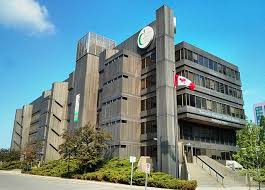
Introduction
The Toronto District School Board (TDSB), as one of Canada’s largest school boards, plays a crucial role in shaping educational outcomes for over 300,000 students. Its policies, operations, and challenges directly affect the city’s youth and the broader community. Recent developments have put the spotlight on the TDSB, reflecting both the successes and the hurdles it faces in the unprecedented post-pandemic educational landscape.
Recent Developments
The TDSB has made significant strides in enhancing mental health resources for students, recognizing the increased pressures attributed to the COVID-19 pandemic. The board has introduced new initiatives aimed at providing support, including hiring additional mental health professionals and implementing comprehensive wellness programs. Additionally, TDSB’s commitment to reconciliation has progressed with updated curriculum expectations that emphasize Indigenous perspectives and experiences.
In September 2023, the TDSB launched a new pilot program focused on digital literacy, aiming to equip students with essential skills for the future job market. This initiative complements the board’s ongoing efforts to integrate technology in classrooms and prepare students for an increasingly digital world.
Challenges Facing the TDSB
Despite these advancements, the TDSB continues to grapple with significant challenges, primarily in areas of funding and infrastructure. Many schools within the district are experiencing a shortage of resources, leading to overcrowded classrooms and outdated facilities. The board is actively seeking increased provincial funding to address these critical issues, advocating for better financial support from the government.
Additionally, the ongoing issue of teacher shortages has prompted discussions about working conditions and compensation, negatively impacting student-to-teacher ratios and overall classroom experiences. The TDSB is working collaboratively with teachers’ unions to find resolutions that prioritize student success and staff well-being.
Conclusion
The TDSB remains at a pivotal juncture as it navigates new educational reforms and addresses ongoing challenges. The commitment to improving student mental health, enhancing digital literacy, and prioritizing Indigenous education are commendable strides. However, addressing funding deficiencies and staffing challenges remains essential for the board to fulfill its mission. As stakeholders continue to push for necessary changes, the future of education in Toronto will depend on the TDSB’s ability to adapt and respond effectively to these complex issues, ensuring equitable access to quality education for all students.



